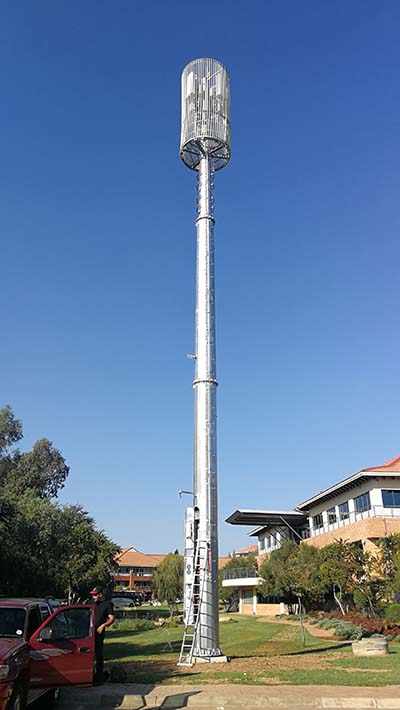A single, efficient policy for building telecommunications infrastructure is essential for South Africa to seize the opportunities of 5G and the fourth Industrial revolution (4IR).

cof
This was the message from telecoms and ICT experts at the Africa Meet Up 2019, Africa’s only passive infrastructure expo, organised by the TowerXchange and hosted in Johannesburg last week.
The annual event attracts participants from national and local governments, regulators, global and regional funding organisations, operators, tower and fibre companies and telecomms infrastructure vendors.
Delegates heard how an enabling environment is critical for the rapid deployment of telecomms infrastructure.
David Chen, Vice-President of Huawei Southern Africa, pointed out that 5G, which guarantees high speed, low latency and a massive number of connections, places higher capacity demands on networks. With sites likely to be closer together in the 5G era, site-approval processes must be simplified and optimised to facilitate rapid network buildout.
“These are the practical realities, as South Africa starts planning for the 4IR age and Gbps Broadband speeds,” said Chen. “Simplifying and standardising site-approval processes will fast track the arrival of 4IR.”
The digital transformation of cities, states and countries begins at the network site-development level. Unfortunately, policies and regulations governing the construction of telecommunications infrastructure are often not aligned with the needs for tower construction.
Many restrictions on the construction of telecommunications infrastructure are out of pace with modern technology. For example, distance restrictions between towers now range between 200m and 3 000m for different cities and countries across Sub-Saharan Africa.
The process for approving site applications is often complex and time consuming, with some approvals taking two years or more. Despite a drive to expedite telecommunications infrastructure development across in South Africa, obstacles remain.
“An enabling environment for the rapid deployment of quality networks is essential for Africa to build a foundation of continuous, quality, broadband connectivity. National norms and standards for the construction of telecommunications infrastructure are critical to guide and streamline essential activities at local levels,” said Chen.
With an eye on enabling this, legislation like Section 21 of the Electronic Communication Act aims to accelerate broadband roll-out. The National Integrated ICT Policy White Paper of 2016 for South Africa set a goal of reducing the time between application process and the actual deployment of infrastructure.
A Rapid Deployment Policy process was subsequently initiated across departments including road, rail, water, energy and telecommunications.
However, site acquisition remains difficult, complex and time consuming. Permit prices and wayleaves for site development can be exorbitant, increasing rollout costs for operators and tower builders and potentially impacting the costs of customer services.
A rapid deployment charter thus becomes critical to unblocking such barriers to rapid site development.
Sharoda Rapeti, Non-Executive Partner at Delta Partners Group, pointed out that an open site strategy would drive network deployment, boost network access, attract investors and enhance spectrum access.
“It is essential that governments begin aligning existing broadband policies and strategies at state, city and municipality levels,” said Rapeti.
